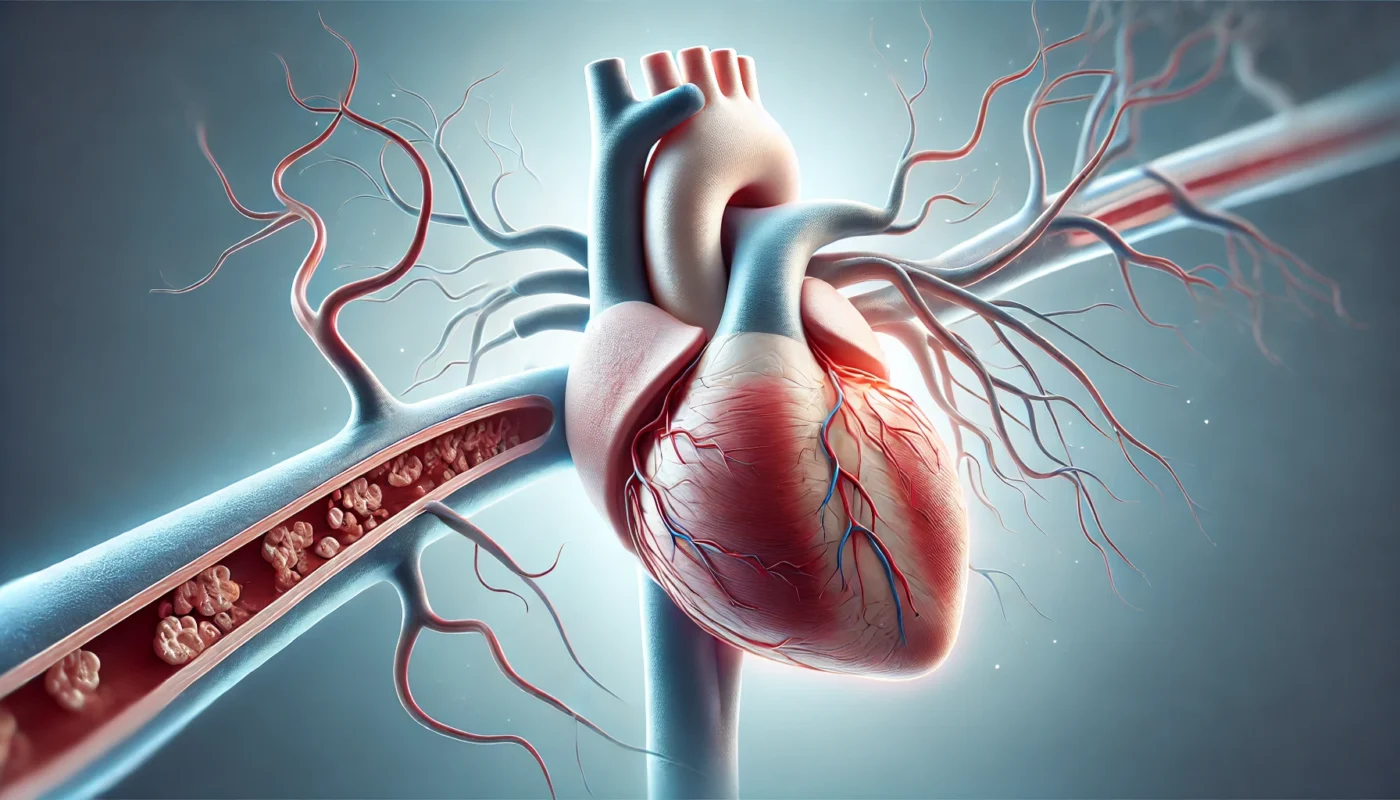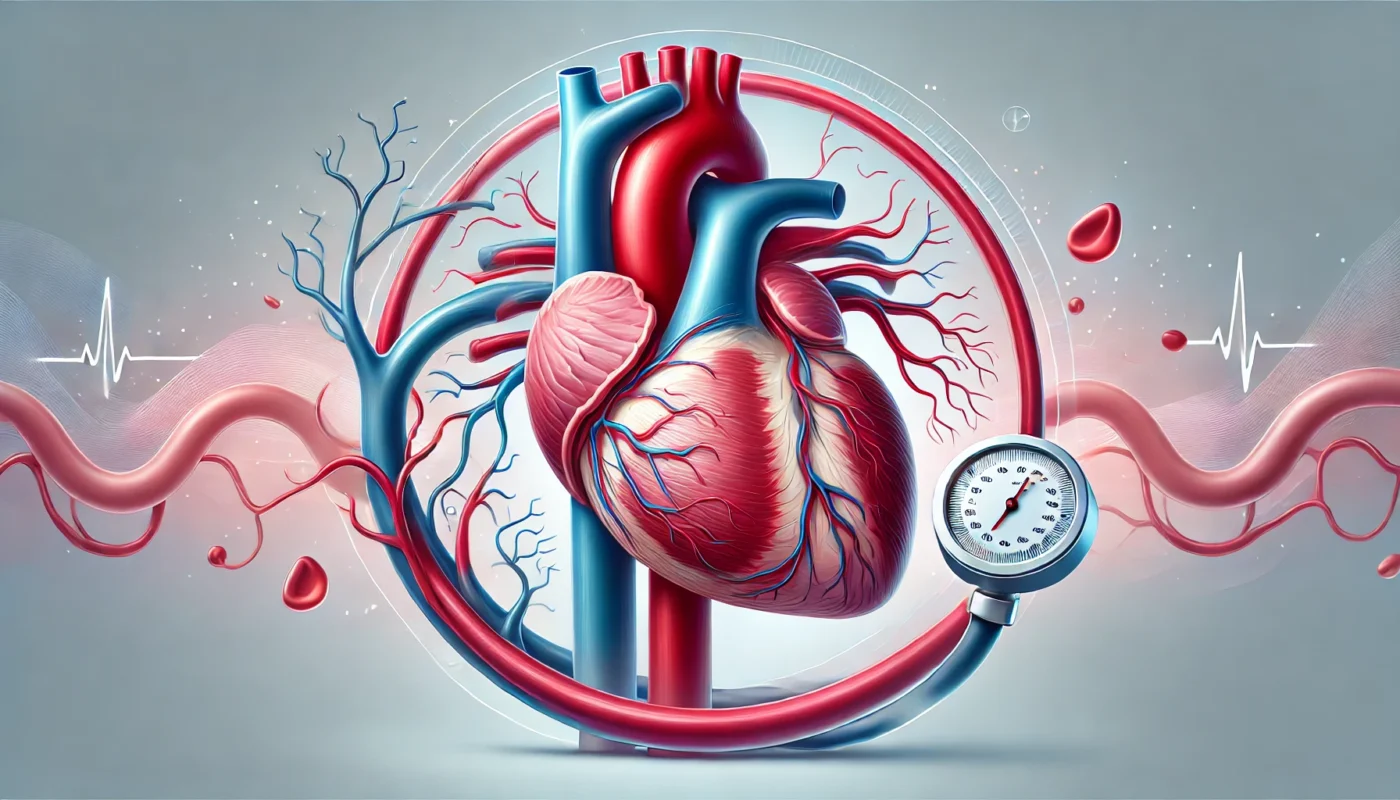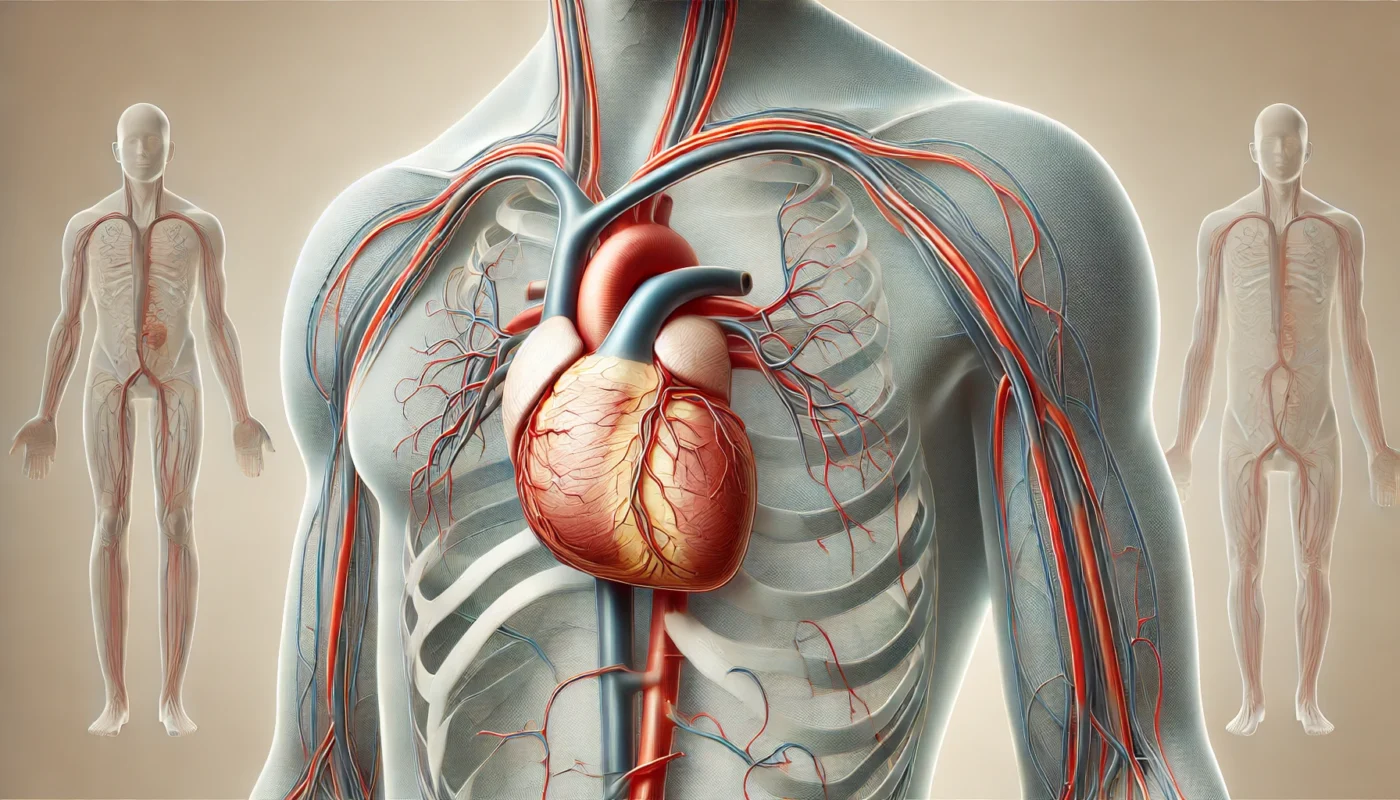Hypertension, or high blood pressure, is a silent yet powerful force in the development of heart disease, which remains the leading cause of death worldwide. According to the World Health Organization (WHO), over 1.28 billion adults globally suffer from hypertension, with only one in five having it under control. Characterized by sustained elevated blood pressure of 130/80 mmHg or higher, hypertension imposes stress on the cardiovascular system, damaging arteries and overworking the heart. This article explores the connection between hypertension and heart disease, the mechanisms that exacerbate cardiovascular risk, and practical strategies to protect your heart.
You May Also Like: Stress and Hypertension: Can Relaxation Techniques Really Help?
Hypertension and Its Impact on the Cardiovascular System
What Is Hypertension?
Blood pressure is the force exerted by blood against the walls of arteries as the heart pumps. Hypertension occurs when this pressure remains persistently high, forcing the heart to work harder and placing undue stress on blood vessels.
Hypertension is often categorized as:
- Primary Hypertension: The most common type, with no identifiable cause but influenced by genetics, aging, and lifestyle factors.
- Secondary Hypertension: Caused by an underlying condition such as kidney disease, hormonal disorders, or certain medications.
How Hypertension Contributes to Heart Disease
The link between hypertension and heart disease lies in the damage that high blood pressure inflicts on the cardiovascular system over time. This damage increases the risk of several conditions:
- Atherosclerosis:
Hypertension accelerates the buildup of fatty plaques in the arteries, narrowing them and restricting blood flow. This condition, known as atherosclerosis, is a major cause of coronary artery disease (CAD). - Left Ventricular Hypertrophy (LVH):
The heart must pump harder to overcome elevated blood pressure, causing the left ventricle to thicken. LVH reduces the heart’s efficiency and increases the risk of heart failure. - Endothelial Dysfunction:
High blood pressure damages the inner lining of blood vessels (the endothelium), impairing their ability to dilate and regulate blood flow. This dysfunction promotes clot formation and inflammation, further increasing cardiovascular risk. - Heart Failure:
Chronic hypertension weakens the heart over time, reducing its ability to pump blood effectively. The American Heart Association (AHA) reports that hypertension is a leading cause of heart failure, contributing to 75% of cases.

Types of Heart Disease Linked to Hypertension
Hypertension contributes to various forms of heart disease, each with unique implications for health.
1. Coronary Artery Disease (CAD)
CAD occurs when the arteries supplying blood to the heart become narrowed or blocked due to plaque buildup. Hypertension accelerates this process by increasing shear stress on arterial walls and exacerbating inflammation.
- Evidence: A study published in Circulation Research (2019) found that individuals with uncontrolled hypertension were 50% more likely to develop CAD compared to those with well-controlled blood pressure.
2. Heart Failure
Heart failure arises when the heart cannot pump enough blood to meet the body’s needs. Chronic hypertension is a primary driver of this condition due to its effects on the heart muscle and vascular system.
- Evidence: Research in Hypertension Research (2020) showed that lowering systolic blood pressure (SBP) by 10 mmHg reduced the risk of heart failure by 25%.
3. Atrial Fibrillation (AFib)
AFib is an irregular heart rhythm that increases the risk of stroke and other complications. Hypertension contributes to structural changes in the heart, making AFib more likely.
- Evidence: A meta-analysis in The Lancet (2020) revealed that individuals with hypertension had a 40% increased risk of developing AFib compared to normotensive individuals.
4. Hypertensive Heart Disease
This term encompasses conditions directly caused by high blood pressure, including LVH, heart failure, and arrhythmias. Hypertensive heart disease is a leading cause of death among individuals with chronic hypertension.

Protecting Your Heart: Strategies for Managing Hypertension
While hypertension poses significant risks to heart health, proactive management can reduce its impact and improve overall cardiovascular outcomes.
1. Regular Blood Pressure Monitoring
Monitoring blood pressure is crucial for detecting and managing hypertension. Home blood pressure monitors provide convenient and reliable measurements, helping patients track their progress.
- Recommendation: The AHA suggests checking blood pressure at least once a year for individuals with normal readings and more frequently for those with elevated levels or hypertension.
2. Adopting a Heart-Healthy Diet
Diet plays a pivotal role in controlling blood pressure and preventing heart disease. The Dietary Approaches to Stop Hypertension (DASH) diet is particularly effective.
- Components:
- High intake of fruits, vegetables, whole grains, and lean proteins.
- Low consumption of sodium, saturated fats, and added sugars.
- Evidence: A randomized controlled trial published in The New England Journal of Medicine (1997) found that the DASH diet reduced SBP by 11.4 mmHg in individuals with hypertension.
3. Engaging in Regular Exercise
Physical activity strengthens the heart and improves blood vessel elasticity, making it a cornerstone of hypertension management.
- Guidelines: The WHO recommends at least 150 minutes of moderate-intensity aerobic exercise per week.
- Evidence: A meta-analysis in Current Hypertension Reports (2018) showed that regular exercise reduced SBP by an average of 5–7 mmHg.
4. Managing Stress
Chronic stress activates the sympathetic nervous system, leading to sustained increases in blood pressure. Stress reduction techniques can help lower blood pressure and protect heart health.
- Techniques: Mindfulness, meditation, deep breathing, and yoga.
- Evidence: A study in Psychosomatic Medicine (2018) found that mindfulness-based stress reduction (MBSR) lowered SBP by 4 mmHg and DBP by 3 mmHg.
5. Medications and Medical Management
For individuals with severe or poorly controlled hypertension, medications such as ACE inhibitors, beta-blockers, and diuretics are essential. These drugs lower blood pressure and reduce cardiovascular risk.
- Recommendation: Always follow your healthcare provider’s instructions and report any side effects to ensure optimal treatment.

The Role of Nutritional Supplements in Cardiovascular Health
In addition to lifestyle modifications, certain nutritional supplements can support blood pressure control and improve heart health. Below are five supplements with evidence-based benefits:
1. Coenzyme Q10 (CoQ10)
CoQ10 is an antioxidant that reduces oxidative stress and improves heart function. A clinical trial in Hypertension Research (2007) demonstrated that CoQ10 supplementation reduced SBP by 11 mmHg and DBP by 7 mmHg.
2. Omega-3 Fatty Acids
Omega-3s, found in fish oil, reduce inflammation and improve arterial health. A meta-analysis in Hypertension (2018) showed that omega-3 supplementation reduced SBP by 4 mmHg and DBP by 3 mmHg.
3. Beetroot Powder
Beetroot powder is rich in nitrates, which enhance nitric oxide production and improve vascular flexibility. A study in Nutrition Journal (2017) found that beetroot supplementation reduced SBP by 4 mmHg.
4. Hibiscus Extract
Hibiscus extract promotes vasodilation and reduces arterial stiffness. The Journal of Nutrition (2010) found that drinking hibiscus tea daily lowered SBP by 6 mmHg in individuals with mild hypertension.
5. Magnesium Glycinate
Magnesium relaxes blood vessels and reduces vascular resistance. A study in Magnesium Research (2016) reported a 5 mmHg reduction in SBP with magnesium supplementation.
Preventing Hypertension-Related Heart Disease: Practical Tips
- Monitor Your Numbers: Keep track of blood pressure and cholesterol levels regularly.
- Stay Active: Incorporate aerobic, strength training, and flexibility exercises into your weekly routine.
- Eat Smart: Prioritize whole, unprocessed foods and limit sodium to less than 2,300 mg per day.
- Limit Alcohol and Avoid Tobacco: Reduce alcohol intake and quit smoking to improve vascular health.
- Seek Regular Medical Care: Work closely with your healthcare provider to manage hypertension effectively.

Conclusion
Hypertension is a major contributor to heart disease, but its impact can be mitigated through proactive management and informed choices. By understanding how high blood pressure damages the cardiovascular system, individuals can adopt strategies such as a heart-healthy diet, regular exercise, stress management, and appropriate supplementation to protect their hearts. With dedication and consistency, it is possible to reduce hypertension’s burden and achieve better cardiovascular health outcomes. Protecting your heart begins with managing hypertension today.
References
- Hypertension Research. (2007). CoQ10 supplementation and its effects on blood pressure. Hypertension Research. Retrieved from https://www.nature.com/hr
- The New England Journal of Medicine. (1997). Effects of the DASH diet on blood pressure. The New England Journal of Medicine. Retrieved from https://www.nejm.org
- Circulation Research. (2019). Hypertension and coronary artery disease risk. Circulation Research. Retrieved from https://www.ahajournals.org
- Psychosomatic Medicine. (2018). Mindfulness-based stress reduction and hypertension. Psychosomatic Medicine. Retrieved from https://journals.lww.com
- Nutrition Journal. (2017). Beetroot powder and vascular health. Nutrition Journal. Retrieved from https://www.biomedcentral.com
Key TERMS for this article:
Hypertension, Heart Disease, Cardiovascular Health, Blood Pressure Control, Atherosclerosis, Heart Failure, Hypertensive Heart Disease
Relevant and useful TAGS for this article:
Hypertension Management, Heart Health, Blood Pressure Reduction, Cardiovascular Risk, Heart Disease Prevention, DASH Diet, Regular Exercise, Stress Management, Nutritional Supplements, Vascular Health
Important Note: The information contained in this article is for general informational purposes only, and should not be construed as health or medical advice, nor is it intended to diagnose, prevent, treat, or cure any disease or health condition. Before embarking on any diet, fitness regimen, or program of nutritional supplementation, it is advisable to consult your healthcare professional in order to determine its safety and probable efficacy in terms of your individual state of health.
Regarding Nutritional Supplements Or Other Non-Prescription Health Products: If any nutritional supplements or other non-prescription health products are mentioned in the foregoing article, any claims or statements made about them have not been evaluated by the U.S. Food and Drug Administration, and such nutritional supplements or other health products are not intended to diagnose, treat, cure, or prevent any disease.

